
FEATHER COLOUR
The first is the black (sometimes dark brown) pigment melanin. The second is the yellow/red pigment pheomelanine. The ground colour of a chickens plumage is pheomelanine. Where this is absent, the bird is called a "silver" as its plumage appears white.
The silver gene allows the expression of some red features, such as red shoulders. Wildtype chickens have a ground colour called "gold". If there is a presence of red enhancers, this gold can be bolstered to a dark red colour. Conversely, gold can be diluted to a yellow or cream colour. This can give rise to silver, yellow or gold plumage.
Of course not all chickens are uniform in colour, many breeds show some degree of black patterning to the feathers, as can be seen with breeds such as Silkies. Furthermore, in some breeds such as the wildtype chicken, males and females can be identified by their sexually dimorphic colouration. Hens must be camouflaged to prevent themselves from being hunted while sitting on their eggs. Her pigment is much more ground (yellowy/brown) coloured compared to that of the male which shows brighter ground colouration with areas of black pigmentation, and a green sheen.
Although completely black pigmented birds are common, genetically, it is not as easy a colour to produce as other colour forms. The reason for this, is because the black colour enhancers or "melanizers" can function in different ways, and this can influence the way in which the melanin claims dominance. While it is true that they can increase the amount of melanin, rendering the bird completely black, they can equally just render an area of the ground colour black as well.
This story is from the February 2023 edition of The Country Smallholder.
Start your 7-day Magzter GOLD free trial to access thousands of curated premium stories, and 9,000+ magazines and newspapers.
Already a subscriber ? Sign In
This story is from the February 2023 edition of The Country Smallholder.
Start your 7-day Magzter GOLD free trial to access thousands of curated premium stories, and 9,000+ magazines and newspapers.
Already a subscriber? Sign In
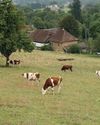
How to Buy a Smallholding in France- Long-time smallholder Lorraine Turnbull looks at the practicalities of moving to rural France
Aspiring smallholders are continually thwarted by the prices of smallholdings and property with land located within the UK. Even the humblest croft in Scotland comes with a substantial price tag and conditions which would make even an adventurous wannabee consider carefully. But all is not lost. For those willing to take the adventure of a lifetime, there is always Europe, and one of the most popular places is France.

Meet the Bournemouth goats and their supporters
These capricious animals are hard workers preserving the natural habitat
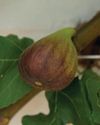
Still warm enough to sit outside with a Pizza
Henrietta Balcon uses fresh figs to create an unusual dish at Harvest time
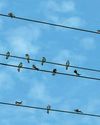
Goodbye to the birds of spring and summer
If you look and listen you might be able to see them preparing to leave says The RSPB
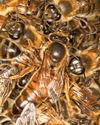
Get ready for the colder weather in the warmth of late summer
Claire Waring advises on doing the best to make sure your colonies survive until next spring

Preparing the Veg Patch for Winter
Lee Senior says, a well-run plot can excitingly continue to produce good quality, tasty, fresh food for much of winter
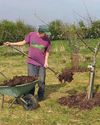
Time to prepare to plant your orchard
Wade Muggleton, smallholder and author of The Orchard Book, shares his practical experience so you can create your own fruit collection
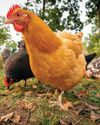
Choosing feed for the autumn
As autumn approaches, Joanna Palmer, nutritionist at the Smallholder Range, offers advice on choosing the right feed to support your adult birds through their annual moult and ensure your young birds grow and finish well at this time of the year.
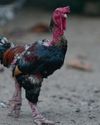
Vet advice from an experienced poultry vet
Reflecting on how much the humble hen has helped people world wide plus advice on stopping the scourge of red mite
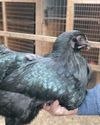
Give your hens some support
Paul Donovan looks at the right and wrong ways of handling birds